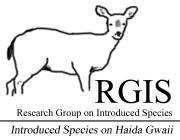

An overview of consequences
- Menu
- Home
- Haida Gwaii
- Introduced Species
- RGIS
- What did we learn?
- Research
- Publications
- RGIS symposium
- School curriculum
- Contacts
- English
- Français
|
|||
|
In 1947 the BC Forest Service introduced red squirrels to Haida Gwaii to make cone gathering easier for replanting trees. They would take cones from the squirrels caches. It didn't work well but the squirrels were prolific and are now widespread on many of the islands. |
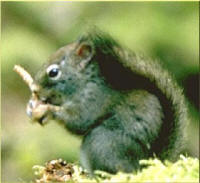 |
||
|
|
|||
|
How
do introduced squirrels interact in the environment that causes concern? |
|||
|
Squirrel are nown to consume song bird eggs and nestlings. |
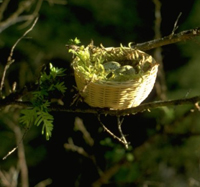 |
||
|
|
|||
|
The remote camera was triggered by the squirrel's movement and caught it in the act of raiding the artificial nest. |
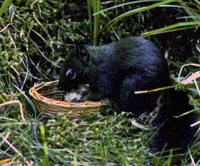 |
||
|
|
|||
|
The red squirrel introduction on Haida Gwaii may have given the native pine marten an added food source and led to the increase in their population. |
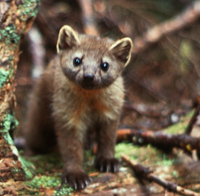 |
||
|
|
|||
| This increase in marten
populations may have led to the decline of the Haida ermine.
The Haida ermine, an island sub-species, is considered the rarest mammal in BC. |
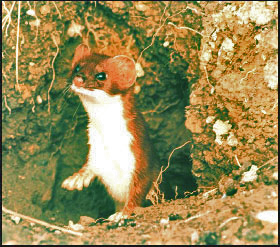 |
||
|
|
|||
|
As with most other species introductions, the consequences of the
squirrel introduction is only partially understood. What began with the
best intention has had impacts that were not so benign and are still
playing out. |
|||
| return to top of
page |
|||